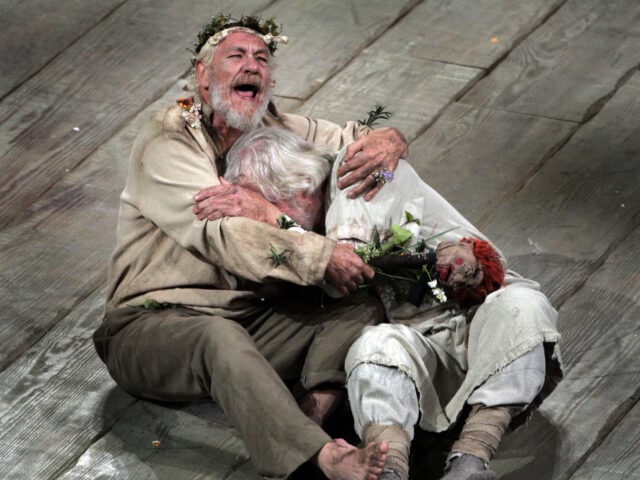One of Shakespeare’s most famous plays really centres around the “destructive potential” of “whiteness”, an academic hosted by the Globe Theatre claimed.
King Lear, a five-part tragedy penned by William Shakespeare with the eponymous mythological British king as its protagonist, really revolves around the idea of the “destructive potential” of “whiteness”, an academic has claimed, despite the play seemingly having little to do with race.
The statement was made at just one of a series of “Anti-Racist Shakespeare” seminars hosted by the Globe Theatre in London, which as a reconstruction of Shakespeare’s original playhouse specialises in hosting plays penned by the Bard.
During the seminar dedicated to discussing King Lear, the two guest panellists, Professor Preti Taneja and Associate Professor Urvashi Chakravarty, repeatedly make reference to “whiteness” — a common term within Critical Race Theory (CRT) — within the play, with both academics relating such “whiteness” to colonialism and strategies of “divide and rule”.
For instance, speaking on King Lear’s decision in the play to divide his realm among his three daughters, Prof Taneja relates it to the work of the British Empire in India, before arguing that what is central to the play is “kinship and whiteness and majesty”.
“[B]y thinking through the lens of power and whiteness, what we’re actually doing is beginning to understand the strategies of that power and how those strategies are then deployed in a racialized way,” the academic argued.
“[W]e are looking at a strategy of dividing, a dividing rule, which is basically the core of empire,” she continued. “So once we begin to understand the strategies of power, we can think about the other questions that are so central to Lear and how when we understand them as being kingship and whiteness and majesty — as divinely endowed majesty — then we’re beginning to ask questions about who is allowed to be considered human in that structure.”
Et Tu? Shakespeare’s Globe Theatre Adds Trigger Warning to Julius Caesarhttps://t.co/61umE2ElZn
— Breitbart London (@BreitbartLondon) May 25, 2022
Meanwhile, Prof Chakravarty expressed fear that, should people fail to examine the “whiteness” within the play, they would end up leaving it “unchallenged”.
“And we also, I think, risk losing an opportunity to see how bound up whiteness and the work of white supremacy is with nation-building, with structures of inheritance, with nations of kingship, of reproduction, the religious legitimacy of class,” she added.
“What they’re trying to do is de-centre whiteness, to make it visible and to make its work visible so that we can all collectively challenge its really destructive potential and history and, well, we’ve watched the current events around the work and the destruction it’s wielding now,” she went on to say.
Theatre Group to Make Shakespeare Play More Obviously Racist to Highlight Bard’s Bigotry https://t.co/D5SSUkgN7c
— Breitbart London (@BreitbartLondon) December 19, 2022
This is not the first time London’s Globe has pushed progressive politics onto Shakespeare, or indeed other classic tales of European history.
Apart from running a series of lectures discussing racism within Shakespeare, the venue has hosted other productions pushing modern talking points on characters from antiquities, with one production at the Globe turning the Christian Saint Joan of Arc into a transgender individual.
Titled I, Joan, the production reworked the devoutly Catholic nationalist icon into an individual with they/them pronouns, reframing her struggle for the freedom of France against the British as a quest to champion her gender identity.
“History has provided countless and wonderful examples of Joan portrayed as a woman,” a press release on the production stated. “his production is simply offering the possibility of another point of view.”
“We are not the first to present Joan in this way, and we will not be the last,” it went on to say.
Joan of Arc Cast as ‘Gender-Neutral’ with ‘They/Them’ Pronouns at Shakespeare’s Globe Theatrehttps://t.co/uztNSl46Up
— Breitbart London (@BreitbartLondon) August 12, 2022

COMMENTS
Please let us know if you're having issues with commenting.